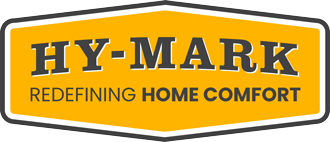As experts in the field of HVAC systems, we recognize the vital importance of efficient airflow for optimal home comfort and energy savings.
Yeah, that sounds technical, but on a day-to-day basis, a broken, inefficient HVAC system will leave your home’s climate feeling much less than desirable.
What’s more, airflow problems not only result in an uncomfortable living environment but also lead to increased energy bills and degraded indoor air quality.
So, how do these benefits sound to you?
Your home being a space you actually like spending time in?
Having a home that’s healthy for you?
Saving money on your energy bill?
Saving money not having to pay for expensive HVAC repair costs?
All of these are possible when you take the time to care for your HVAC system, taking the time to clear out any airflow disruptions that prevent your system from running at 100%.
In this guide, we’ll exploring the top ten most common causes of HVAC airflow issues, helping locate any potential problems to ensure the maximum efficiency and longevity of your system.
Let’s get into it.
10 Common HVAC Air Flow Disruptions You Need to Know
Dirty Air Filters
As one of the leading causes of HVAC inefficiencies, dirty air filters are a primary culprit.
When filters clog with dust, debris, and other pollutants, they impede airflow. This can lead to an array of issues, including higher energy consumption, growth of mold and bacteria, and even the system overheating.
Regularly cleaning or replacing your air filters is an effective way to improve system efficiency.
Blocked Vents
Vents obstructed by furniture, curtains, or debris can limit air circulation, leading to an unsafe buildup of carbon monoxide and causing unnecessary strain on the HVAC system.
Maintaining clear paths for all vents in your home can greatly enhance the effectiveness of your HVAC system.
Leaky Ductwork
Ductwork with cracks or holes can result in significant air loss, reducing the overall efficiency of your HVAC system. In some cases, outdoor air may even be pulled into your system. Repairing leaky ductwork with a liquid rubber sealant is an easy fix that can enhance HVAC performance.
Improperly Sized Ductwork
HVAC efficiency is highly dependent on properly sized ductwork. If the ductwork is too small, it can constrict airflow, while overly large ductwork can result in uneven air distribution and lowered efficiency.
Unusual noises like whistling or popping from your HVAC system can indicate improperly sized ductwork or blocked vents.
Dirty Coils
Accumulation of dirt or debris on your air conditioner’s coils can impair their ability to absorb heat, causing the system to work harder and eventually leading to breakdowns. Regular inspection and cleaning of the coils is a crucial part of HVAC maintenance.
Damaged Blower Fan
A blower fan in disrepair, possibly due to a damaged belt or bearing issues, can cause distressing noises and reduce the efficiency of your HVAC system. If you hear unusual sounds from your unit, it may be time to check the blower fan.
Faulty Thermostat
A malfunctioning thermostat, which is most often a result of failed wiring, can prevent your HVAC system from turning on or operating efficiently. This means your home may not be heated or cooled as needed, leading to an uncomfortable experience and may result in the system working overtime.
This is a quick fix as you simply need to check the thermostat is working properly every couple of months, ensuring optimal HVAC performance.
Low Refrigerant Levels
Low refrigerant levels can lead to low pressure and low temperatures within your HVAC system, potentially causing the evaporator coil to freeze and the moisture in the air to solidify.
Fortunately, all you need to do is regularly monitor your system’s refrigerant levels and then refill the system when it’s low, and you can prevent these issues.
Closed or Blocked Registers
Blocked registers can not only stop airflow but also cause pressure to build up within the system, which very quickly leads to inefficiencies. Ensuring registers are open and clear is an essential aspect of HVAC maintenance.
Poor Maintenance
Without regular maintenance, an HVAC system can experience many problems, including energy overconsumption, utility bill spikes, and accumulation of dirt and debris.
Just remember that a system that operates as close to perfect as possible has a longer lifespan, will experience less expensive faults, and will provide a better experience. A little bit of time and effort here and there will make a world of difference.
Final Thoughts
As you can see, effectively managing these common causes of airflow issues is key to ensuring your HVAC system operates as efficiently as possible and your home stays comfortable.
As a homeowner, taking steps to understand and maintain your HVAC system can significantly save energy costs and contribute to a healthier living environment.
And as you can probably see from these ten disruptions, many of the problems can be quickly solved or prevented when you have regular checkups of your HVAC system and have a maintenance plan in place.
Get in touch with us now and experience the difference that Hy-Mark can make for your home!
Call Our Office At (226) 407-5966 For A Free Home Comfort Consultation.
